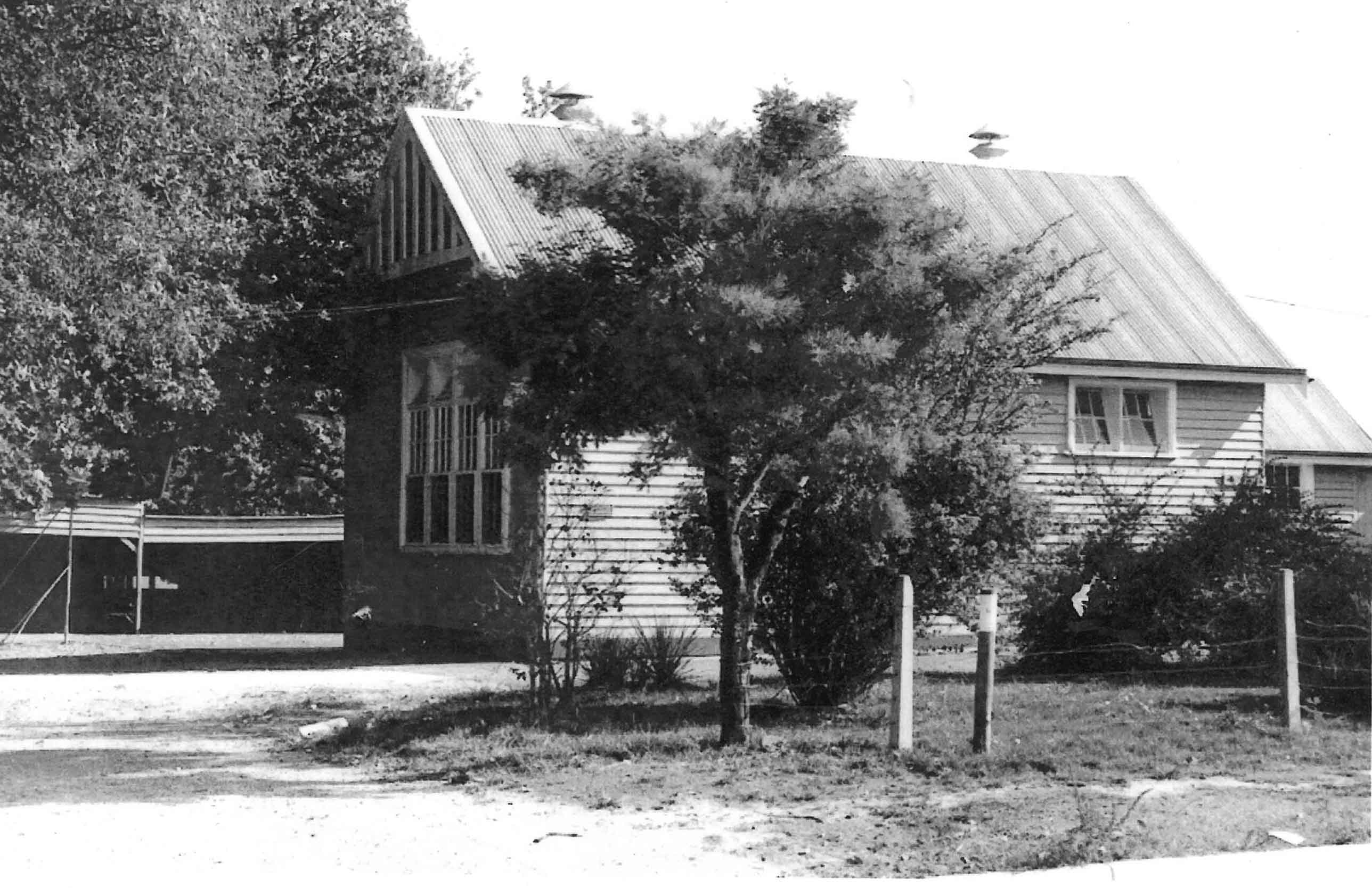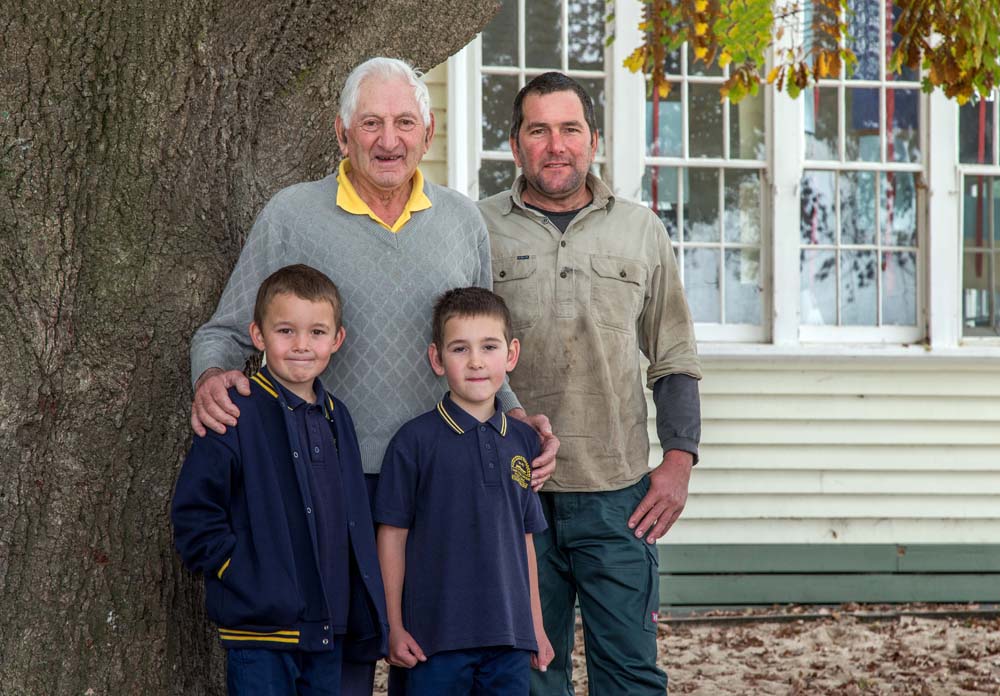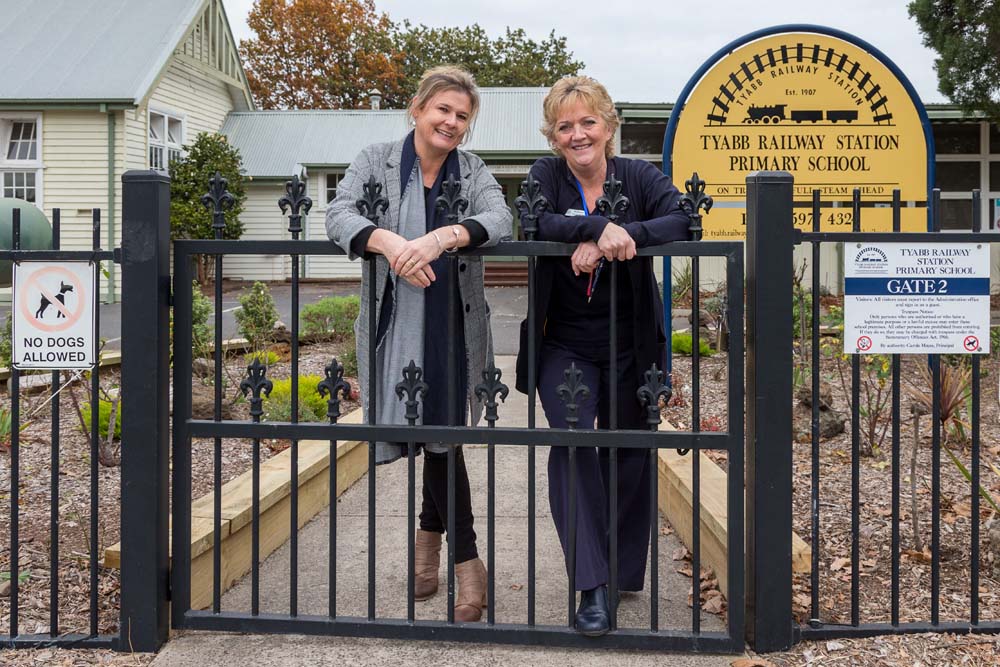
By Melissa Walsh Photos Gary Sissons
Angelo Taranto strolls over to the Tyabb Railway Primary School from his massive 200 acres across the road where he has run Taranto Farm for decades. The walk to the school is a familiar one for the grandfather, who started there as a young lad in 1947 when the whole school consisted of 20 pupils and each year level was together in the same school building. These days, Angelo drops into the school to visit his twin grandsons. Three decades before, he would walk over with his own kids.
As the children play outside in the playground, laughing and giggling as they test out their Indonesian buggies for Indonesian day, Angelo sits in the school that is celebrating its 110th anniversary this year, and recalls a time when life was simpler.
“I was five when we came down to Tyabb. It was soon after the war finished and dad wanted to come down here, that’s when I started at the Tyabb Railway Primary School,” says Angelo. “There was the wooden school building and the little enclave where we hung our coats and hats. A massive gum tree stood outside that was so enormous but was cut down. The two big oaks which still stand there were planted when the school opened and looked as big to me then as they do now.”
From memory, Angelo says it was the Cole family that owned the whole block from Frankston Flinders Road to the Crescent, and what is now Dandenong Hastings Road, but was called Cranbourne Road then and was made of gravel.
“Old man Cole donated this land for the school and the church back in the 1800s from what I’ve been told,” he says. “We only had the building and little annexe and there were about six kids in grade one and two.”
Angelo says the average school day was probably not much different to today, still doing school work and being in class for many hours every weekday. The difference began outside with the rules and regulations not as stringent as in days gone by.
“When we were little we would wait out the front on certain days when the old farmers would come up with their drays. Wednesdays we all lined up out the front waiting for the horses to go past,” said Angelo. “You would also never see cars, as there were only two families that came to school in a car. One was the Grants who had about 400 acres where BHP is. One of the kids had polio and was in a wheelchair so rode in the back of the car. The other was the Thornell girls who came in a car as they weren’t allowed to ride a bike. The rest either rode a bike or walked and a lot walked through our paddocks. After the war there was a shortage of everything and kids would come to school with newspaper wrapped around their pants, tied up with string to keep dry going through the paddocks as they didn’t have boots. Then they would take the papers off and light the fire in the school house.”
For Angelo, and many others of his generation, punishment was well and truly allowed in school.

“If a kid did something wrong you got in trouble. The cupboard in the corner near the fire had the straps and the cane. It was the last resort for my teacher to give the strap but we got it occasionally. His thing was, if you played up, he would make you go and pick up a bucket full of acorns and then he would go out and throw them in the long grass and you would have to pick them all up as your punishment. He had a pet hate about throwing stones. If you did that, it was a bucket of acorns.”
Just like the kids today, Angelo and his mates played footy and cricket. The one main difference was how they got to the games.
“If we played footy in Somerville we would run up the railway line all the way to the Somerville oval. We were in grade one and I don’t think that would happen these days. We had about ten boys then so never a team. We always reckon they were robbing us of a victory because by the time we had run there we were exhausted,” he says with a laugh. “Occasionally if my dad had time he would load the whole school into the back tray of his truck when we went to Hastings as it was too far to walk. He would put all 20 odd kids on the tray and tie a rope around them so no one fell out. He would pull the rope tight and tie a couple of loops at the back so no one slid out. I think that sort of thing went on in a lot of country schools.”
With three generations of the Taranto family involved with the school, Tyabb Railway Station School Principal Emma Slater and long time staff member Vikki Buchan believe the successive generations of students are indicative of the community spirit the school continues to have.

“It is the sense of connectedness that we still have here that will make all the difference to the future of our students. We have 119 students and we ensure that we know each child’s name and how they are going personally and academically,” said Emma. “I am aware that students in the 21st Century have access to a wealth of information and they are not always able to digest and understand such vast amounts. In Angelo’s day is was simpler and the information wasn’t as readily available to them. We want to teach our children how to sift through what’s true, what’s relevant, and have the necessary literacy skills to be able to put everything into context.”
Emma says it is also imperative that the children have a voice no matter what their age.
“I want them to be able to ask the questions they need to, in order to satisfy their curiosity about mankind and the world around them. We encourage our students to have a voice and to speak up and to share their thoughts and ideas,” she said. “If our students are confident and resilient, have information and are well educated, then they are going to make the most brilliant members of society. I want them to have an imagination and an understanding of the endless possibilities that this world has to offer. The key to having a happy healthy and productive society is one where curiosity, creative thinking, communication and collaboration are nurtured.”
For Vikki, who has been fortunate enough to work with a number of principals over her 20 years with the school, it has been a privilege to watch many of the student’s journeys as they grow to adulthood.
“They then return with their own children, and a new journey with the next generation begins,” she said. “Currently I enjoy watching chickens roam the school grounds and having the joy of being able to watch my granddaughter, who is now a student, become a member of this beautiful community with its rich history.”
Tyabb Railway Station Primary School is celebrating 110 years of educating children this year. The school is restoring the original schoolhouse with generous donation of services and supplies from James Carr – P.R.Griffiths.Pty.Ltd and Paul Leeden Bowens Hastings.
Tyabb Railway Station Primary School is at 88 The Crescent, Tyabb.
Phone 5977 4324
tyabbrailps.vic.edu.au





